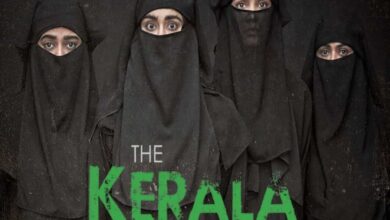‘Better for students to attend classes than protests’: Karnataka HC on hijab row
The HC on Friday put out the full copy of Thursday’s order on resumption of classes and said it was “pained by the ongoing agitations”, but underlined that the right to freedom of religion may have “reasonable restrictions”.

The interest of students in Karnataka will be served better if they return to classes rather than raise protests over issues like wearing the hijab and saffron shawls in classrooms, a full bench of the Karnataka High Court has stated in its seven-page interim order on the hijab row which has led to the closure of colleges in the state.
The high court on Friday put out the full copy of its order after initially issuing oral orders on Thursday at the end of a hearing for interim relief on the issue regarding whether a ban on Muslim girls wearing the hijab in classrooms in some colleges in the state is a violation of their fundamental right to freedom of religion.
“The interest of students would be better served by their returning to the classes than by the continuation of agitations and consequent closure of institutions. The academic year is coming to an end shortly,” the high court full bench comprising Chief Justice Ritu Raj Awasthi, Justice Krishna S Dixit, and Justice J M Khazi stated in the interim order.
“Elongation of academic terms would be detrimental to the educational career of students especially when the timelines for admission to higher studies/courses are mandatory,” the court said while directing the reopening of colleges in the state.
“In the above circumstances, we request the state government, and all other stakeholders to reopen the educational institutions and allow the students to return to the classes at the earliest,” the order said.
“Pending consideration of all these petitions, we restrain all the students regardless of their religion or faith from wearing saffron shawls (Bhagwa) scarfs, hijab, religious flags or the like, within the classroom, until further orders,” the order states.
“We make it clear that this order is confined to such of the institutions wherein the College Development Committees have prescribed the student dress code/uniform,” the court said.
The high court also expressed pain over the agitation. “Firstly, we are pained by the ongoing agitations and closure of educational institutions since the past few days, especially when this Court is seized of this matter and important issues of constitutional significance and of personal law are being seriously debated,” it said.
“It hardly needs to be mentioned that ours is a country of plural cultures, religions, and languages. Being a secular State, it does not identify itself with any religion as its own. Every citizen has the right to profess and practice any faith of choice is true,” the court said.
It also added that the right to freedom of religion was not absolute. “However, such a right not being absolute is susceptible to reasonable restrictions as provided by the Constitution of India. Whether wearing of hijab in the classroom is part of the essential religious practice of Islam in the light of constitutional guarantees, needs a deeper examination.”
“Ours being a civilized society, no person in the name of religion, culture or the like can be permitted to do any act that disturbs public peace and tranquility. Endless agitations and closure of educational institutions indefinitely are not happy things to happen. The hearing of these matters on an urgent basis is continuing,” the full bench said.
Senior advocate Sanjay Hegde argued that the Karnataka Education Act of 1983 has no provision which enables colleges to prescribe uniforms for students. “The 1995 Rules, apart from being incompetent, are not applicable to pre-university institutions since they are promulgated basically for schools,” he contended.
Another senior advocate, Devadatt Kamat, argued that a government order of February 5, 2022, was drafted without application of mind and that decisions of the Kerala, Madras and Bombay high courts cited by the state order cannot be the foundation for banning hijabs in some colleges in Karnataka. He argued that the state has no powers to issue orders on uniforms.
The Karnataka Advocate General, in a brief intervention, argued that the government had not issued any order prescribing uniforms but had left it to the discretion of the colleges.
The AG told the court that the demand for allowing girls wearing hijabs in college classrooms had resulted in a counter demand by other students to attend classes with saffron, blue shawls and other marks of symbolism forcing the state to impose prohibitory orders around colleges.





